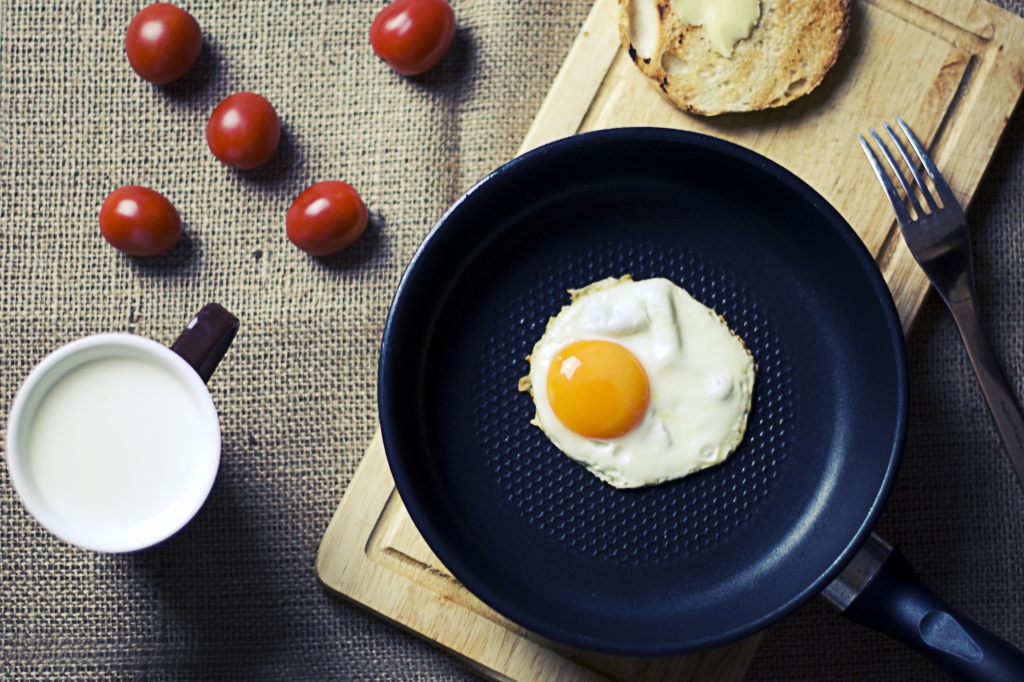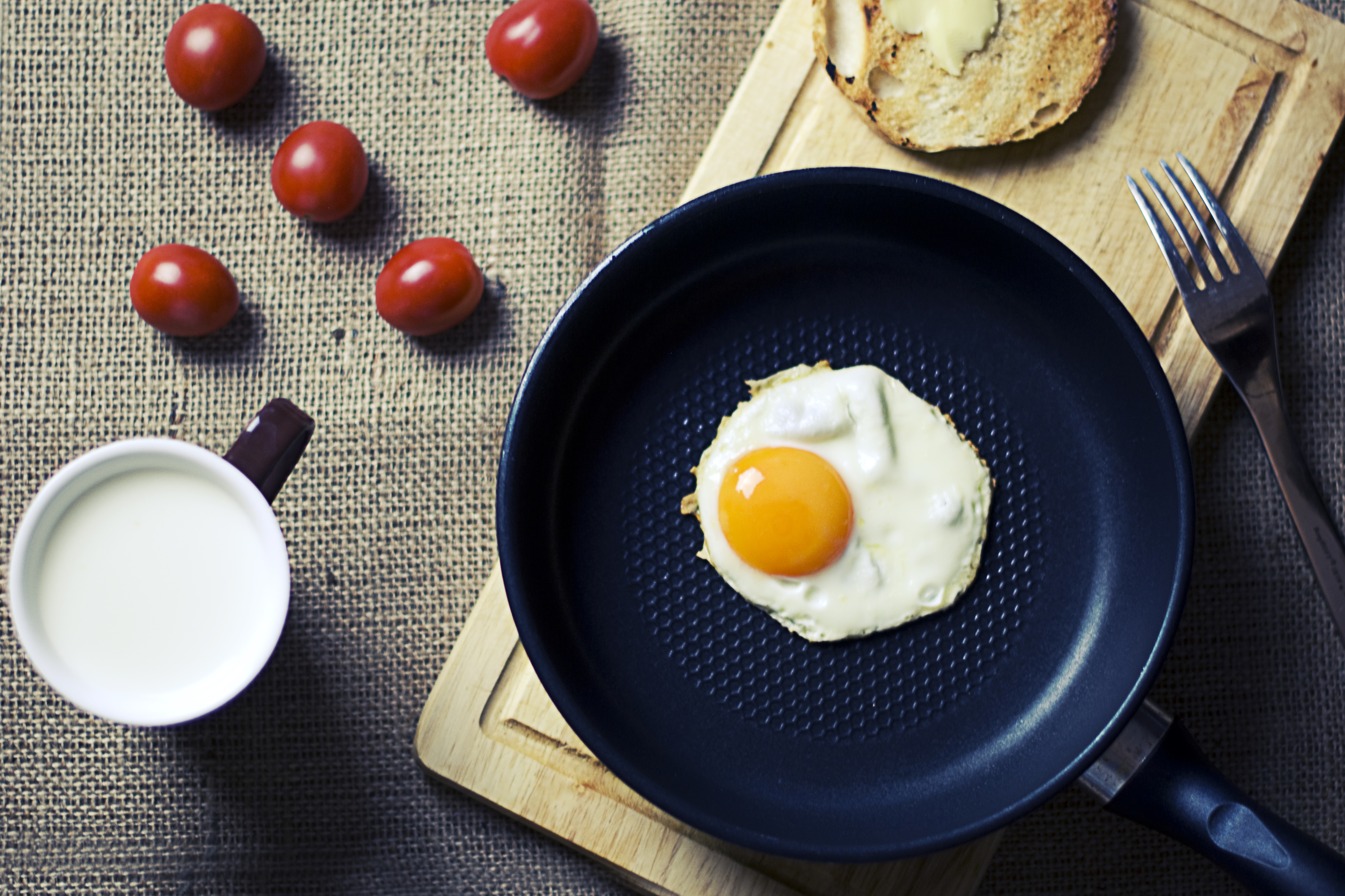Scrambled, boiled, fried, poached or folded into a hardy omelette; the truth is that the humble egg is an energy-packed way to start the day.
Once upon a time, this breakfast staple had a bad rap. Experts told us that eggs were loaded with cholesterol (a waxy substance in your cells which also has several useful functions in the blood) and shouldn’t be eaten more than once or twice a week for fear of increasing the likelihood of heart disease.
However, lately dieticians have changed the message on the health benefits of eggs.
Although it is true that eggs contain high amounts of cholesterol, many studies report that this actually has no role in raising cholesterol. This is because the liver, which produces cholesterol every day anyway, will simply produce less of the substance if needed. Still, other research suggests that only the egg yolk may adversely affect the levels of cholesterol in the body. However, it is widely agreed that a reasonable consumption of eggs, an egg per day, is unlikely to raise the risk of heart disease risk.

Whose egg is it anyway, chicken or duck?
Aside from chicken eggs, which are found most often in the usual grocery stores, duck eggs are also sometimes available on the shelves. So what are the differences between eating duck and chicken eggs?
According to this article, there are several differences between duck and chicken eggs:
- Duck eggs stay fresher longer because they are encased in a thicker shell.
- Duck eggs make for fluffier cakes because they contain more albumen
- Although it is often believed that duck eggs are more nutrition that actually has more to do what the female has been eating.
- People who are allergic to chicken eggs can usually tolerate duck eggs.
Nutritional Benefits of Eating Eggs
1. Counting calories
One large hard-boiled egg makes for the perfect breakfast food or snack later in the day; especially for those of us who are counting calories. At only 78 calories for a large egg, you will be left feeling fuller for longer and therefore, your energy level will be kept up while your weight is kept down.
2. Pack a protein punch
A whole egg contains 6 grams of protein, which is 12% or the Recommended Daily Allowance (RDA) and double the amount of protein found in one slice of bacon (in addition, eggs have no preservatives or added salt).
3. Vitamins and minerals
Eggs really are little power packs of nutrients. They are an excellent source of choline which is essential for liver and nerve function, brain development, muscle movement, supporting energy levels, and to help retain a healthy metabolism.
In addition, eggs are also an exceptional source of selenium, biotin, vitamin B12, vitamin B2, molybdenum, and iodine. Eggs are also a good way of getting vitamin B5, protein, phosphorus, vitamin D, and vitamin A.
It’s important to note that what a laying hen eats will affect the nutritional benefit of the eggs she lays. For example, eggs that are high in omega-3 fatty acids may have been laid by a hen fed fish oil, chia or flax seeds. Hens which forage for their own food may also produce eggs that are relatively enriched in omega-3 fatty acids compared to cage-raised chickens.
4. Fantastic Fats
Did you know that not all cholesterol is bad? Low Density Lipoprotein (LDL), “bad” cholesterol, can build up in the walls of your blood vessels and narrow the passageways. In advanced cases, this can lead to heart disease.
High Density Lipoprotein (HDL), or “good” cholesterol, helps to eliminate other types of cholesterol from the bloodstream, which is a positive activity because higher levels of HDL are related with a lower risk of heart disease, stroke, and other health issues.
In fact, one study reported that two eggs per day for six weeks increased HDL levels by as much as 10%.
5. Cook creatively
Like with most meals, how you cook the food determines how healthy the end result is (think boiled or baked potatoes versus French fries cooked in canola oil).
The same is true of eggs which can be as plain and simple as the modest boiled egg or as lavish as Eggs Benedict (a dish that consists of an English muffin topped with bacon or ham, a poached egg, and a sauce made of whipped egg yolk, butter, water, and lemon juice).
But the ingredients are not the only important factor when determining whether a meal is healthy. Traditional nonstick pans have been found to give off toxic fumes and adding oil or butter to the pan to prevent sticking suddenly changes the nutritional value of the eggs.
What’s a cook to do?
For egg lovers, marble frying pans need little or no added oil and will give the traditional omelette pan a run for the money.
After examining the numerous health benefits of adding eggs to your daily diet, the only question left to ask is; how would you like your eggs?

